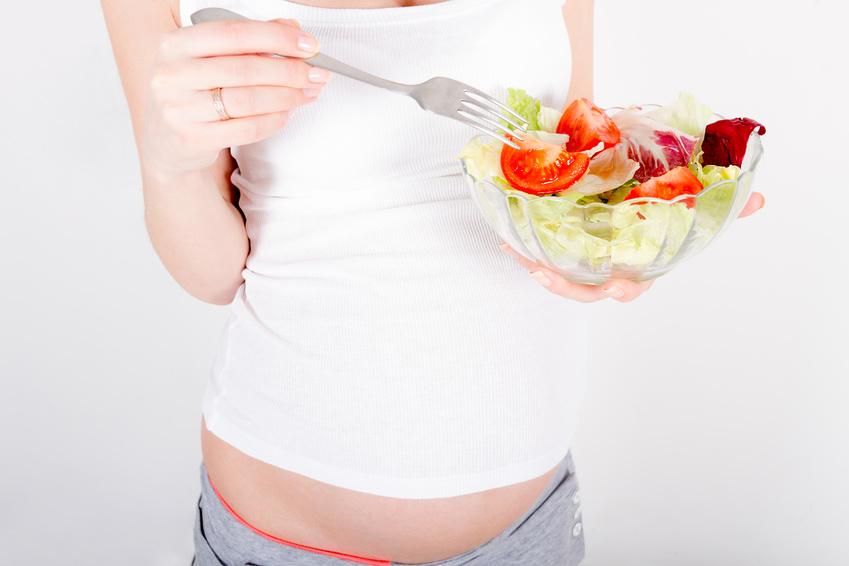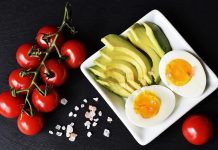In a world where dietary choices are as diverse as the cultures they spring from, the question of whether pregnant women should adopt a vegan lifestyle invites a rich tapestry of opinions, research, and personal narratives. Pregnancy, a time marked by profound physical and emotional transformations, brings with it a heightened focus on nutrition and well-being. As the trend towards plant-based eating continues to grow, expectant mothers find themselves at a crossroads: to embrace the vegan path or to tread more traditional routes. This article delves into the myriad considerations that come into play when contemplating a vegan diet during pregnancy, exploring the potential benefits and challenges, and seeking to illuminate a path that is as nourishing as it is ethical. Through a lens that balances scientific inquiry with personal stories, we aim to provide a comprehensive guide for those navigating this pivotal decision, offering insights that resonate with both heart and mind.
Nutritional Needs and Vegan Alternatives for Expectant Mothers
Expectant mothers often wonder about meeting their nutritional needs while adhering to a vegan lifestyle. With careful planning, a plant-based diet can provide all the essential nutrients needed during pregnancy. Key nutrients to focus on include protein, iron, calcium, vitamin B12, and omega-3 fatty acids. These nutrients support fetal development and maternal health. Here are some vegan alternatives to ensure a balanced diet:
- Protein: Incorporate foods like lentils, chickpeas, quinoa, and tofu to meet protein requirements.
- Iron: Dark leafy greens, fortified cereals, and legumes are excellent sources of plant-based iron.
- Calcium: Almonds, fortified plant milks, and broccoli can help maintain strong bones.
- Vitamin B12: Nutritional yeast and fortified foods are essential for a B12 boost.
- Omega-3 Fatty Acids: Flaxseeds, chia seeds, and walnuts provide healthy fats for brain development.
By incorporating these nutrient-rich foods into their diet, vegan expectant mothers can ensure they are nurturing both themselves and their developing baby. It is always advisable to consult with a healthcare provider or a registered dietitian to tailor a dietary plan that meets individual needs.

Potential Health Benefits of a Vegan Diet During Pregnancy
Adopting a vegan diet during pregnancy can offer several health advantages when carefully planned and balanced. A plant-based diet is often rich in essential nutrients such as fiber, vitamins, and antioxidants, which can support a healthy pregnancy. Fiber, found abundantly in fruits, vegetables, and whole grains, aids in maintaining digestive health and can help prevent constipation, a common issue during pregnancy. Additionally, antioxidants from plant sources may contribute to reduced inflammation and improved immunity, both of which are beneficial for expectant mothers.
Moreover, a vegan diet can be lower in saturated fats and cholesterol, potentially leading to improved cardiovascular health. Important nutrients like folate, iron, and calcium can be obtained from fortified plant-based foods or supplements, ensuring both mother and baby receive the necessary support for growth and development. It’s crucial, however, for pregnant women considering a vegan diet to plan meals meticulously and consult healthcare professionals to ensure they meet their nutritional needs.
- Rich in fiber and antioxidants
- Lower in saturated fats and cholesterol
- Potentially improved cardiovascular health
- Essential nutrients can be sourced from fortified foods
Addressing Common Concerns and Misconceptions about Vegan Pregnancy
Many people hold concerns and misconceptions about the feasibility and safety of a vegan diet during pregnancy. One prevalent worry is the belief that a vegan diet may not provide sufficient nutrients. However, with careful planning, a vegan diet can meet all nutritional needs during pregnancy. Pregnant women can obtain essential nutrients such as protein, iron, calcium, and omega-3 fatty acids from plant-based sources. For example, legumes, nuts, seeds, and fortified plant milks can be excellent sources of protein and calcium. Meanwhile, foods like chia seeds, flaxseeds, and walnuts can help in meeting omega-3 requirements.
Another common misconception is that a vegan diet might lead to a deficiency in vitamin B12. While it is true that B12 is primarily found in animal products, it can be easily supplemented or obtained from fortified foods. To ensure a balanced diet, consider including the following in your meal plan:
- Fortified cereals and plant-based milks for vitamin B12 and calcium
- Leafy greens and lentils for iron and folate
- Tofu, tempeh, and quinoa for protein
- Almonds, broccoli, and kale for calcium
By addressing these concerns with informed choices, a vegan diet can be a healthy and viable option during pregnancy.

Expert Tips for a Balanced Vegan Pregnancy Diet
Ensuring a well-rounded diet during pregnancy is crucial, and going vegan can offer a variety of health benefits when done mindfully. Here are some expert tips to maintain balance:
- Protein Power: Focus on protein-rich plant foods like lentils, chickpeas, quinoa, and tofu to support the growth of your baby.
- Iron Insight: Boost iron absorption by pairing iron-rich foods such as spinach and beans with vitamin C sources like oranges or bell peppers.
- Omega-3 Essentials: Incorporate flaxseeds, chia seeds, and walnuts to ensure adequate intake of essential fatty acids for brain development.
- Calcium Care: Opt for fortified plant-based milks, almonds, and leafy greens to meet calcium needs for strong bones.
- Vitamin B12 Vigilance: Since B12 is primarily found in animal products, consider fortified foods or supplements to maintain energy levels.
By paying attention to these key nutrients, you can enjoy a nourishing vegan pregnancy that supports both you and your growing baby.
Key Takeaways
In the unfolding narrative of nutrition and motherhood, the question of whether pregnant women should embrace a vegan lifestyle remains a canvas painted with both vibrant colors and subtle nuances. As we step back to observe the masterpiece, it becomes clear that the decision is as personal as it is profound. Navigating the delicate balance of nourishment for both mother and child is a journey that intertwines science, ethics, and individual values.
While a vegan diet can offer a cornucopia of health benefits and align with personal beliefs, it also demands careful orchestration to ensure all nutritional needs are met. With the guidance of healthcare professionals and a mindful approach to dietary planning, a vegan lifestyle during pregnancy can be both a nurturing and empowering choice.
Ultimately, the choice to go vegan while pregnant is a deeply individual one, influenced by a myriad of factors unique to each woman. As the conversation continues to evolve, one thing remains constant: the importance of informed decisions, compassion, and support in the beautiful journey of bringing new life into the world.


































